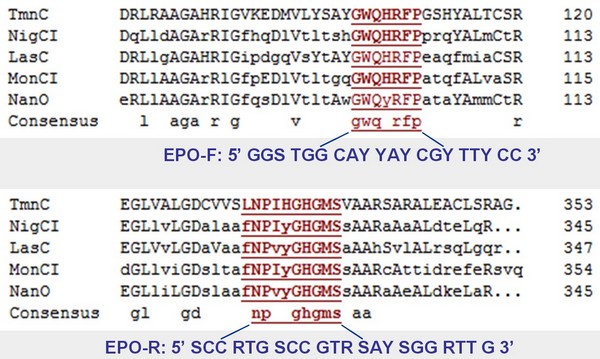Recently, Prof. HUANG Ying’s group at State Key Laboratory of Microbial Resources, Institute of Microbiology, Chinese Academy of Sciences found a special epoxidase gene encoding a critical tailoring enzyme involved in the biosynthesis of these compounds in the complete gene clusters of polyether ionophores published so far. They then designed a pair of specific primers according to the conserved regions of the known polyether epoxidases to detect potential producers of these antibiotics.
A total of 44polyether epoxidase gene-positive strains were obtained by PCR screening of 1068 actinomycetes isolated from eight different habitats and 236 reference strains encompassing eight major families of Actinomycetales. Four genera were detected to be positive, and streptomycetes isolated from acidic soils seem to be a promising source of polyether ionophores. The designed primers also detected epoxidase genes from diverse known producer strains that produce polyether ionophores unrelated to the five published gene clusters. Moreover, phylogenetic and chemical analyses showed a strong correlation between the sequence of epoxidases and the structure of encoded polyethers. Thirteen positive isolates were proved to be polyether ionophore producers as expected, and two new analogues were found. This study thus establishes a feasible genetic screening strategy that is useful for the rapid identification of known and the discovery of unknown polyether antibiotics in actinomycetes.
This study was published in Applied and Environmental Microbiology, 2011, 77(10):3433-3442 and was supported by the Natural Science Foundation of China (no. 30770002) and the National Hi-Tech Research and Development Program of China (no. 2007AA09Z420).

-- The design of polyether epoxidase gene-specific primer pair (Image by HUANG) --

-- Polyether antibiotic etheromycin and its new analogue (Image by HUANG) --